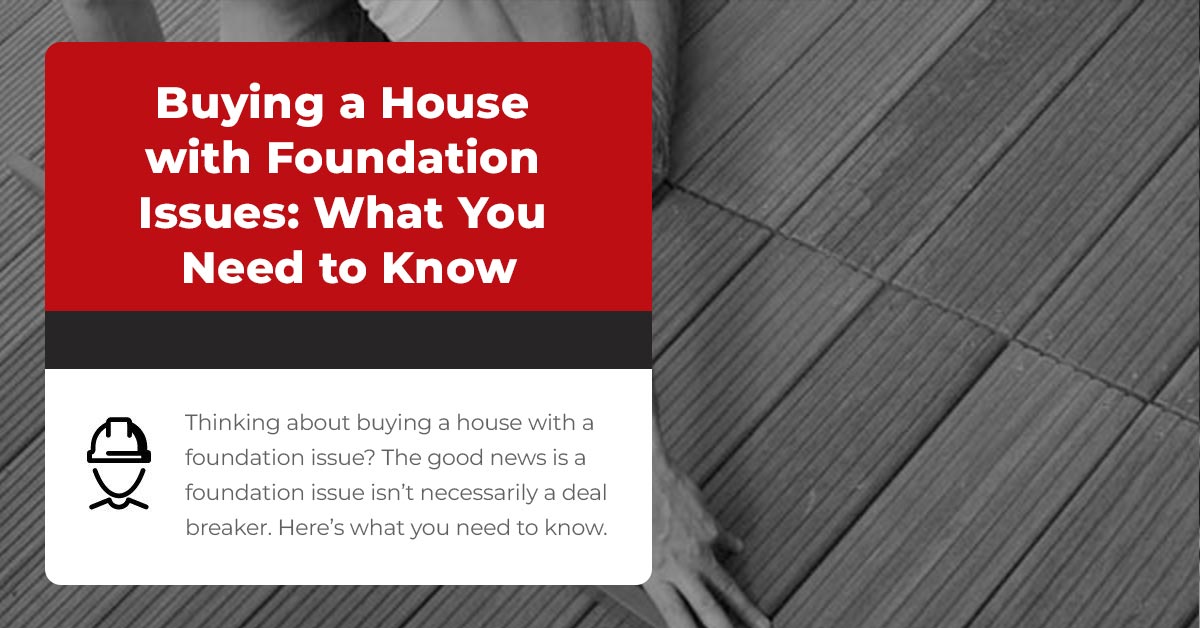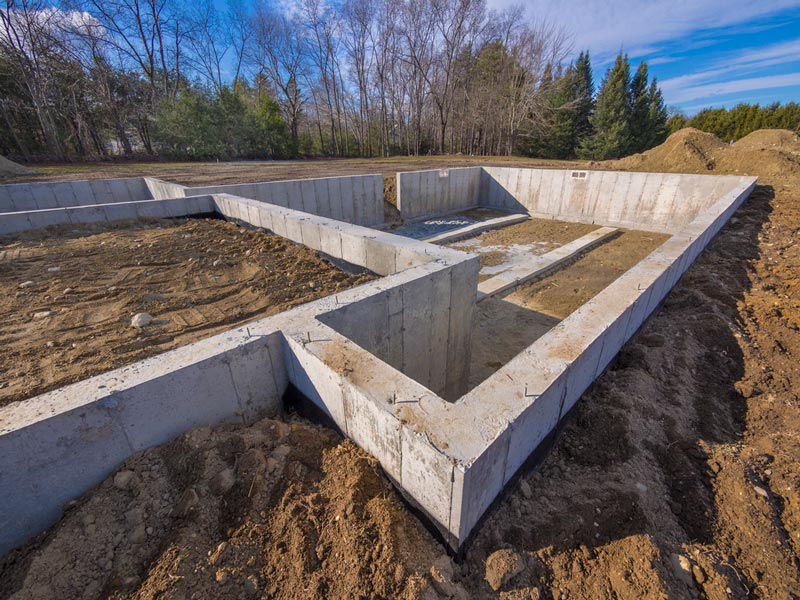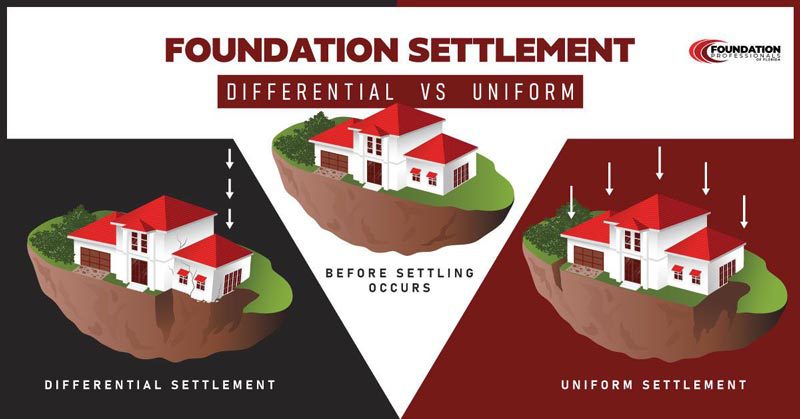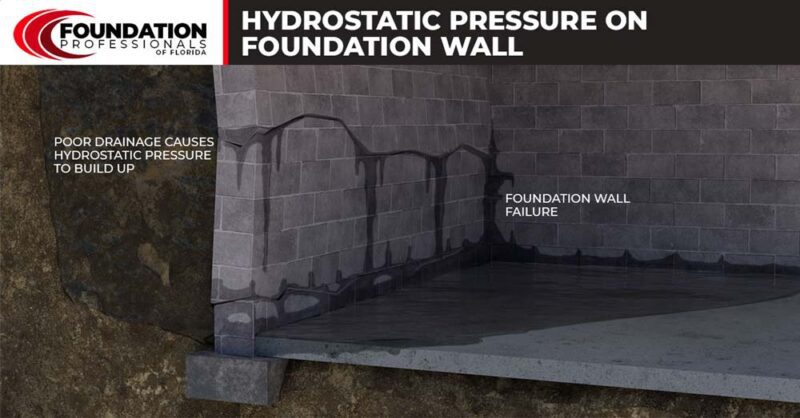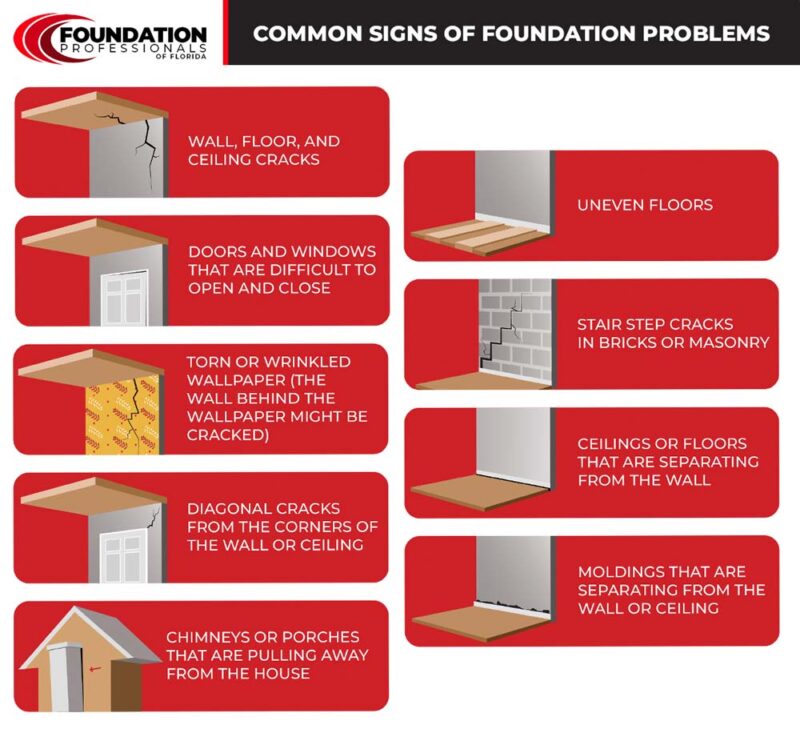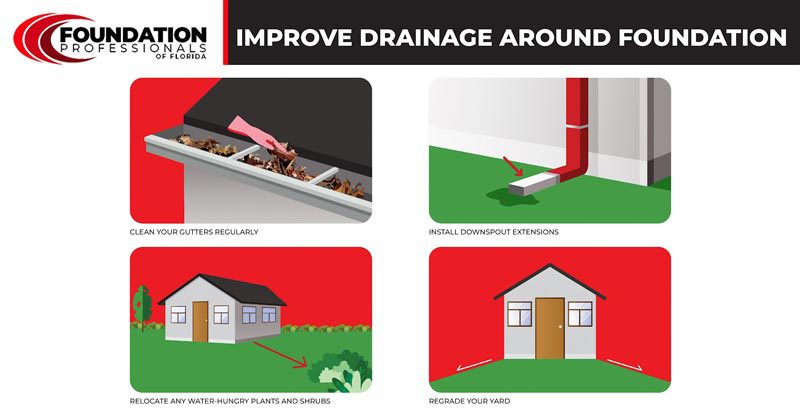Looking for information about buying a house with foundation issues? If so, you’ve landed on the right page because that’s what we’re going to talk about in this article. We’ll cover what it means when we say a house has a “foundation issue”, why a foundation issue isn’t necessarily a deal breaker, and what you need to do before you sign on the dotted line.
What Is A Foundation?
A foundation is a structure beneath a building that supports its weight and distributes it evenly over the ground. A house’s structural integrity is only as good as the foundation’s structural integrity.
What Do We Mean When We Say A House Has A Foundation Issue?
When we say a house has a foundation issue, we’re saying that the foundation is damaged in some way and no longer able to adequately support the house sitting on top of it. Symptoms of a foundation issue include wall cracks, uneven floors, and doors and windows that no longer open and close correctly. We’ll talk more about common signs of a foundation problem in just a bit.
If left unrepaired, a foundation issue can eventually cause severe structural damage. Therefore, foundation issues must be identified and addressed as soon as possible. If you wait, the problem will worsen, and you’ll pay more for the repair. If you suspect your house may have a foundation issue, it’s essential to consult a licensed foundation repair contractor immediately.
When Buying A House, A Foundation Issue Isn’t Necessarily A Deal Breaker
While finding out that a house you are interested in buying has a foundation issue can be concerning, it doesn’t necessarily mean it’s a deal breaker. Almost all foundation problems can be repaired. However, there are some things to be aware of:
Not all foundation problems are created equal
It’s essential to understand that not all foundation problems are created equal. Some foundation problems are relatively minor. For example, while a small hairline crack in a foundation wall caused by shrinkage during the concrete curing process can allow water to infiltrate a basement or crawl space, it doesn’t affect the house’s structural integrity. However, other foundation issues are more serious. For example, differential settlement – when a foundation settles into the ground unevenly – can affect the house’s structural integrity.
The cost to repair a foundation varies according to the type and extent of the damage
While foundation repairs aren’t cheap, they’re often less expensive than people believe. The cost to repair a foundation will vary depending on the type and extent of the damage and what needs to be done to fix it. It could be as simple as applying a sealant to small cracks or as complicated as installing piers. In any case, the repair cost can often be negotiated with the seller.
Buying A House That Has Already Had A Foundation Repair
If the house you’re considering buying has already had a foundation repair, this isn’t necessarily a bad sign. Foundation issues are not uncommon, and as long as the problem has been addressed by a reputable foundation repair contractor that’s still in business, the repair is under warranty, and the warranty can be transferred to the new owner, you shouldn’t have anything to worry about. However, you’ll still want to find out why the repair was done and if the problem that caused the damage has also been addressed.
Get An Inspection Before You Sign On The Dotted Line
Buying a house is one of the most significant financial investments most people make in their lifetime. Therefore, being cautious and thorough during the buying process is crucial. That means getting the house inspected by either a foundation repair contractor or a structural engineer before signing on the dotted line. Even though the seller usually must disclose a known foundation issue, this doesn’t mean they will.
There’s also the possibility the seller doesn’t know the house has a foundation issue. Failure to have the house’s foundation inspected before signing anything may result in costly repairs, leaving you with a much less valuable property than you initially thought.
A foundation inspection done by a repair contractor or a structural engineer will provide a detailed report outlining every aspect of the home’s condition, including foundation issues that must be resolved. As noted above, an inspection can also help you negotiate a lower price if significant problems are found.
Common Causes Of Foundation Issues
The most common cause of foundation problems is differential settlement
This phenomenon occurs when a structure settles into the ground unevenly. The best way to explain this is via an illustration:
So, what causes differential settlement?
Several factors contribute to differential settlement. For instance, poor soil compaction before construction can cause a building’s foundation to settle unevenly over time.
Also, expansive soil and erosion-prone soil can cause movement in the ground under the foundation, eventually leading to uneven settlement.
Drought and large tree roots can also cause differential settlement. When there’s a drought or prolonged dry weather, soil moisture content decreases, causing the soil beneath the building’s foundation to dry out and contract. Similarly, tree roots can absorb moisture from the soil in significant amounts, causing the soil to dry up. Both situations can cause voids to form in the ground beneath the foundation. The foundation can then settle into the voids leading to differential settlement.
Another factor contributing to foundation problems, including differential settlement, is inadequate maintenance. Regular inspection allows potential foundation problems to be identified and corrected early. If these signs are overlooked or become a low priority, the foundation may settle differentially, leading to significant structural issues.
Hydrostatic pressure is another common cause of foundation issues
Hydrostatic pressure is the force exerted by water when it’s static or confined. Poor drainage around a foundation can cause hydrostatic pressure to build up and push against foundation walls. Over time, this pressure can cause the foundation wall to bow inward and even crack.
Hydrostatic pressure is powerful enough to push water through invisible cracks in a foundation wall and into a basement or crawl space. This will lead to a wet basement or crawl space and mold formation, creating an unhealthy living environment.
Therefore, homeowners need to keep an eye on the soil moisture levels around the foundation of their homes. Heavy rainfall, poor drainage systems, or improper grading all increase the water saturation in the soil and ultimately increase the hydrostatic pressure.
Warning Signs A House Might Have A Foundation Problem
Homeowners must know the warning signs their home’s foundation may be in trouble. This will enable them to take swift action before the problem worsens and becomes even more expensive to fix:
- One of the most common signs that a home’s foundation may be experiencing problems is the appearance of cracks in the walls, floors, and ceilings.
- Another warning sign a foundation problem might be present is the appearance of doors and windows that are difficult to open and close.
- A chimney or porch pulling away from the house is another sign the house’s foundation might have a problem.
- Uneven floors are another common sign of a foundation issue.
- The presence of water or moisture in the basement or crawl space.
If you suspect that there may be a problem, it’s essential to act promptly. Contact a foundation repair contractor and ask for an inspection.
Things Homeowners Can Do To Help Prevent Foundation Issues
Since many foundation problems are caused by excess moisture in the ground around a foundation, you can go a long way toward preventing trouble by simply controlling groundwater. Here are the best ways to do this:
- Clean gutters regularly – The primary function of gutters is to direct rainwater away from your home’s foundation. Gutters clogged with dead leaves and other debris can cause water to spill over the side of your house and soak the ground around the foundation.
- Use downspout extensions – When it rains, water is directed from the gutters to the downspouts. However, if the downspouts are too short, the water will be released around the home’s foundation, where it can cause trouble. Downspout extensions ensure the runoff is directed away from the foundation before release.
- Re-grade your yard, if necessary – A yard’s grading or slope should be designed so that the water drains away from the foundation. You don’t want water draining toward a foundation because when water accumulates in the ground around a foundation, it can seep inside the basement or crawl space, leading to dampness and mold growth. Also, as noted above, excess moisture in the soil can cause hydrostatic pressure to build up and push against the foundation wall, potentially causing damage.
- Install a drain tile system – A drain tile system works by diverting water away from your home and into a designated drainage area. Doing so helps prevent excess moisture from building up in the ground around your foundation. This helps maintain the structural integrity of your home and prevents various moisture-related issues from occurring. For more information, see Learn How To Drain Water Away From Your Foundation.
If you’re considering buying a house with foundation issues and would like the foundation evaluated, contact us today to set up an appointment.

